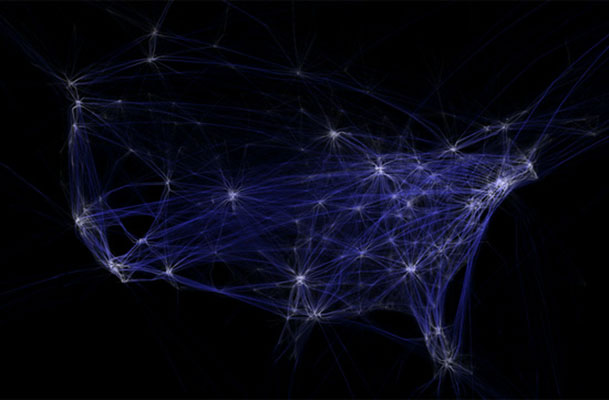Airport of the future. Devoid of take-offs, landings. Derelict hub. The passenger era having followed the strip-lights to the exit. Heat of steel, glass. Kids barefoot on tarmac. The encampments were quick to spread here. Spaces once open. Signs no longer apply. Former meanings, functions. Arrows lead to nothings, nowheres. Proliferation of tents, tarps, improvs on a theme of shelter. ‘Temporary’ uttered less and less (palliative word). Fires throw the only night-lighting. The thinning. Safeties, sanitations (relativities). Sustenance amounts to sprouts in water. Seeds once saved. Harvesting water from the slants of roofs. A hangar become hothouse, an airliner become home. Hierarchies trampled (what of hierarchies of need, triage?). Travel is but a story. The endless elsewhere. What was once a city’s intersection of complexity (flightpath web). That ancient theme of waiting.
Departures, arrivals



